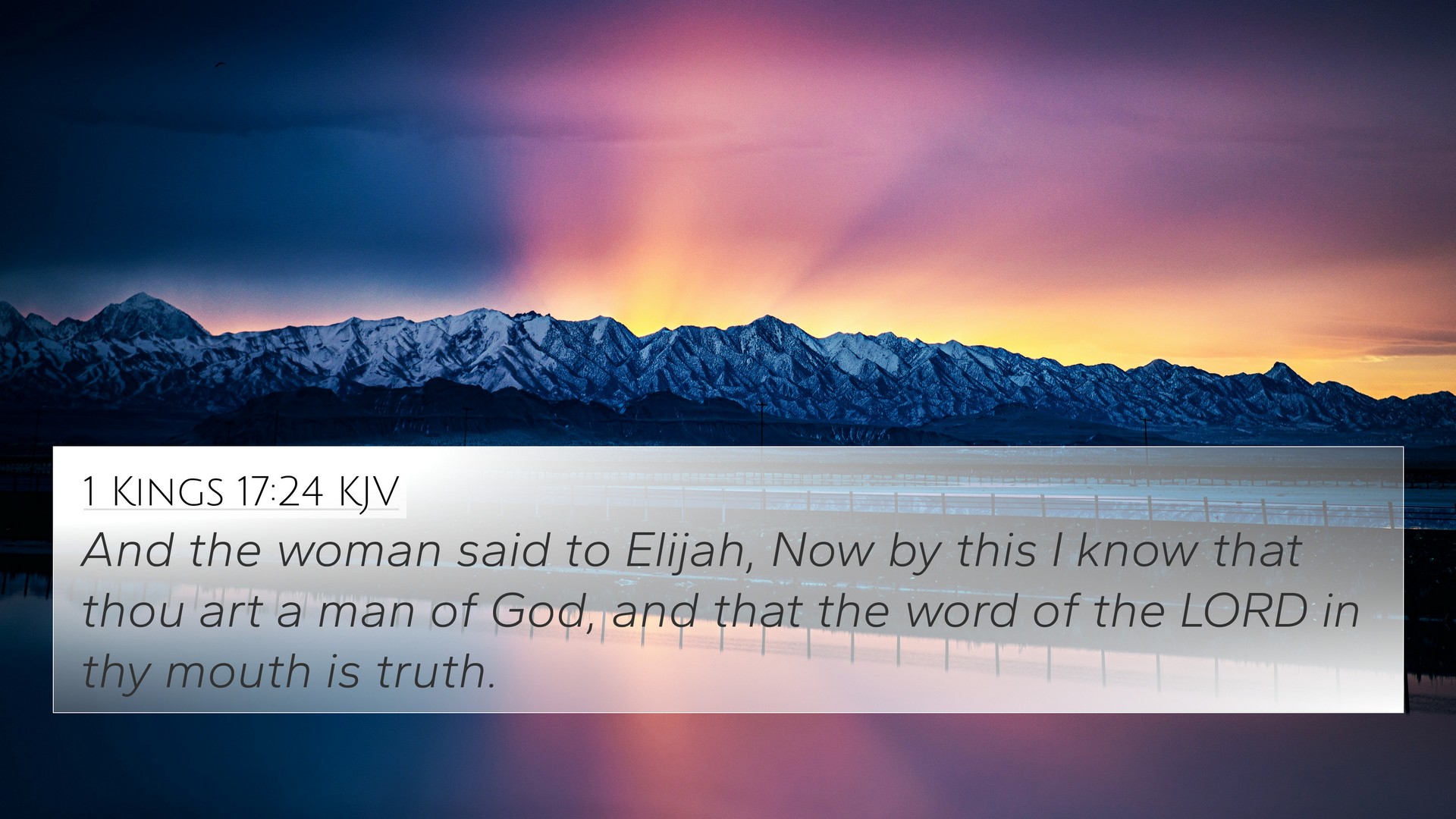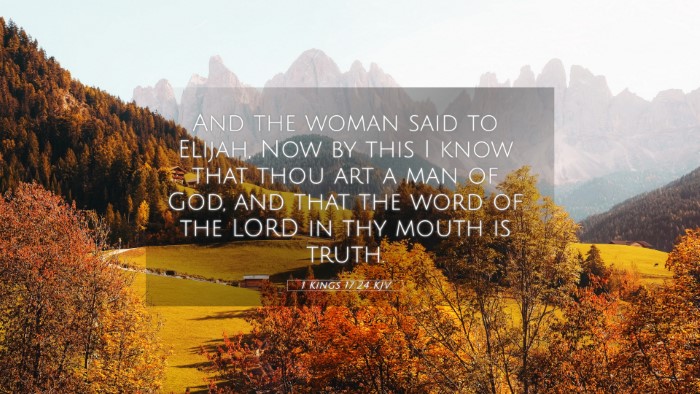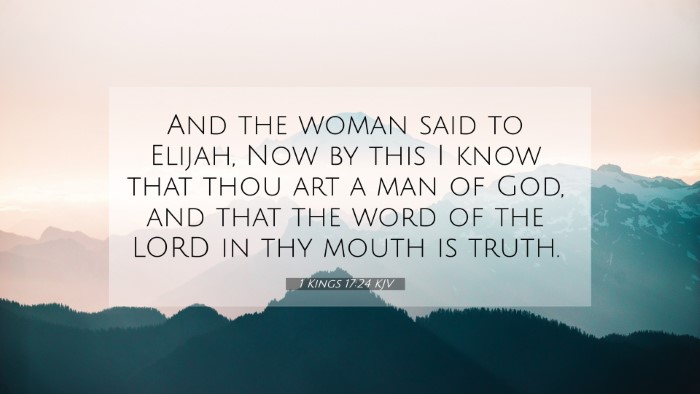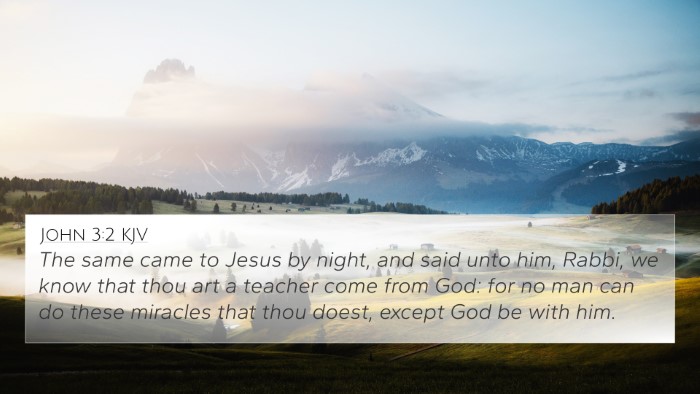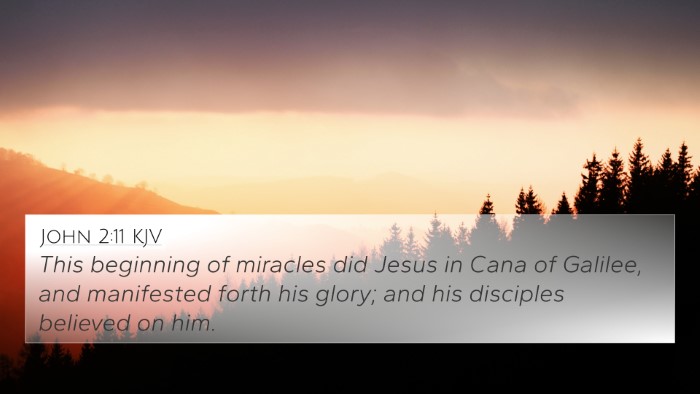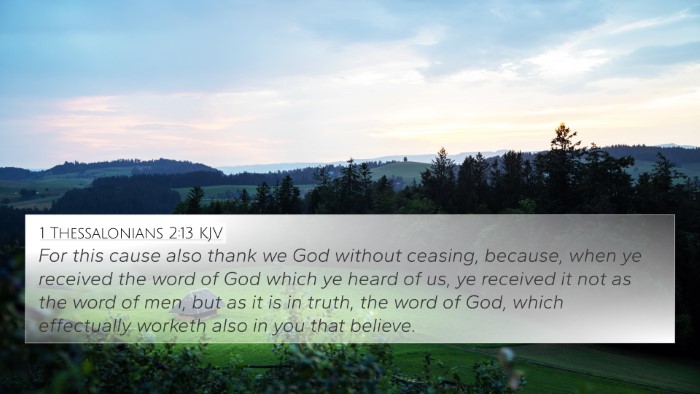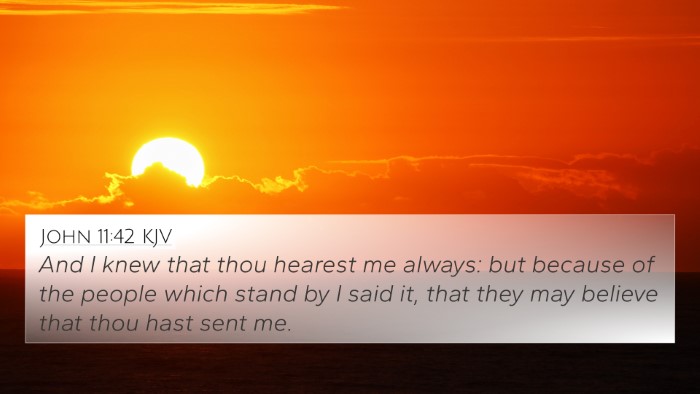Understanding 1 Kings 17:24
In 1 Kings 17:24, we encounter a profound moment of revelation and faith. The verse states,
"And the woman said to Elijah, 'Now I know that you are a man of God, and that the word of the Lord in your mouth is truth.' This statement comes after an extraordinary series of events where Elijah, the prophet, performs a miracle by raising the widow's son from the dead. This act not only showcases God's power through Elijah but also marks a pivotal transformation in the widow's faith.
To gain a deeper understanding of this verse, we can explore insights from various public domain commentaries:
-
Matthew Henry's Commentary:
Henry emphasizes the significance of the widow's recognition of Elijah's divine authority.
He notes that her declaration highlights a journey from doubt and despair to faith and acknowledgment of God's presence. The miracle served as a clear vindication of Elijah's prophetic role and God's power, reinforcing the idea that true faith often follows experiences of divine intervention.
-
Albert Barnes' Notes:
Barnes focuses on the transformational aspect of the widow’s understanding. He explains that
the events leading to this moment not only confirm Elijah’s prophetic identity but also act as a
catalyst for the widow’s faith. She explicitly acknowledges that the "word of the Lord" is true,
signifying a profound personal revelation of God’s truth and care.
-
Adam Clarke's Commentary:
Clarke provides insight into the historical context, noting the extreme circumstances of the
widow’s plight and her initial skepticism. The miraculous restoration of her son ultimately leads her to
recognize not just Elijah’s authority, but God’s compassion and truth as represented through him.
Clarke suggests that this moment is significant as it encapsulates the transition from earthly despair to
spiritual enlightenment.
Bible Verse Cross-References
To better understand the connections between this verse and other scriptures, we can examine several
related Bible verses that reflect similar themes of faith, the power of God, and the role of prophets:
-
1 Kings 18:39: "And when all the people saw it, they fell on their faces; and they said, 'The Lord, He is the God!'"
This verse relates to the recognition of God’s power and authority, similar to the widow's acknowledgment of Elijah.
-
John 11:43-44: "He cried with a loud voice, 'Lazarus, come forth.' And he who had died came out."
This New Testament parallel of resurrection reinforces themes of faith and divine power.
-
Matthew 9:22: "But Jesus turned around, and when He saw her He said, 'Be of good cheer, daughter; your faith has made you well.'"
Similar to the widow’s experience, this verse highlights the connection between faith and healing.
-
Hebrews 11:32-34: "And what more shall I say? For time would fail me to tell of...those who through faith subdued kingdoms, worked righteousness..."
This speaks to the overall theme of faith leading to miraculous outcomes, paralleling the widow's transformation.
-
2 Kings 4:34-35: "And he went up and lay on the child, and put his mouth on his mouth, his eyes on his eyes, and his hands on his hands..."
This event shows another instance of a prophet performing a miracle, reinforcing God's power through His servants.
-
Luke 7:14-15: "He came and touched the open coffin, and those who carried it stood still. And He said, 'Young man, I say to you, arise!'
This resurrection miracle echoes the experience of the widow in 1 Kings 17:24.
-
Acts 9:36-41: "But Peter put them all out, and knelt down and prayed; and turning to the body, he said, 'Tabitha, arise.'"
Another example where a prophet raises someone from the dead, indicating God's ongoing power through His followers.
Connecting Themes in the Bible
The thematic connections highlighted through these cross-references reveal a consistent narrative of faith, divine authority, and miraculous interventions God makes in the lives of believers. The recognition of God’s truth, as expressed by the widow, resonates throughout Scripture, often leading others to faith through miraculous signs.
Understanding 1 Kings 17:24 within its intertextual context helps to illustrate the broader teachings of Scripture regarding faith, the miraculous works of God, and the ongoing relationship between prophets and the people they serve. Engaging in a comparative Bible verse analysis can enhance comprehension and allow for a deeper appreciation of the interwoven narratives present across both the Old and New Testaments.
Tools for Bible Cross-Referencing
To further explore the connections between Bible verses, one could utilize various tools:
- Using a Bible concordance to locate related verses based on keywords.
- Employing a Bible cross-reference guide that provides pre-arranged connections between themes.
- Studying online resources and software tailored for cross-referencing Bible study.
- Reading commentaries that frequently highlight links between Biblical texts.
Learning how to use these tools effectively will empower individuals to identify connections and deepen their understanding of thematic Bible verse connections. Cross-referencing Bible study methods invite believers to expand their insights into the character of God and the messages communicated through His chosen instruments, culminating in a richer spiritual experience.
